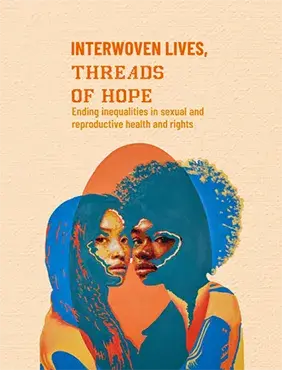Entitled “Interwoven Lives, Threads of Hope: Ending inequalities in sexual and reproductive health and rights”, the report highlights the role racism, sexism and other forms of discrimination continue to play in blocking broad gains in sexual and reproductive health for women and girls. The data are damning. Women and girls who are poor, belong to ethnic, racial and indigenous minority groups, or are trapped in conflict settings, are more likely to die because they lack access to timely health care.
“One important reason is inequality. New evidence in this report shows that although women across socioeconomic classes and ethnicities say barriers to health care have come down over time, the women most marginalized have experienced the least improvement.
“In other words, while the world has focused on serving the easiest to reach, we have neglected to confront the inequalities and disparities within our systems and societies, which has allowed gaps to widen into chasms,” said Dr. Natalia Kanem, UNFPA Executive Director.


